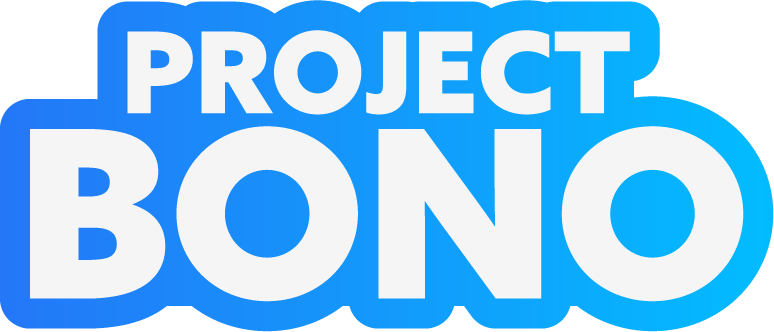
Why We Created a Course on Theft Prevention.
Project Bono
The latest addition to the Project Bono library of court-ordered-courses is Theft Prevention. Otherwise known as larceny, theft is defined by the FBI’s Uniform Crime Reporting (UCR) Program as the unlawful taking, carrying, leading, or riding away of property from the possession of another. Among these are thefts of bicycles, motor vehicle parts and accessories, shoplifting, pocket-picking, package theft, or any other type of theft that is not committed through force, violence, or fraud.
The FBI’s UCR Program reported that the rate of theft or attempted theft in 2018 was 1,594.6 per 100,000 inhabitants. In that year, victims of theft lost an average of $6 billion nationwide.
Misdemeanor Theft
In the state of California, if the value of stolen goods is valued under $950, it is considered a misdemeanor offense punishable by up to 6 months in jail and a fine of $1,000. Those that are convicted of larceny will often be required to complete probation requirements like community service and enroll into a correctional education program like Project Bono in order to avoid jail time.
Rather than incarcerate individuals convicted of petty-larceny at the expense of the taxpayers, Project Bono's alternative allows offenders to be educated on the error of their ways while contributing a portion of enrollment proceeds towards community enrichment in order to offset the burden on taxpayers.
Rather than incarcerate individuals convicted of petty-larceny at the expense of the taxpayers, Project Bono's alternative allows offenders to be educated on the error of their ways while contributing a portion of enrollment proceeds towards community enrichment in order to offset the burden on taxpayers.
Porch Pirates
Millions of American consumers prefer online shopping for its convenience as ecommerce continues to grow rapidly. Home delivery is convenient, but it comes with a risk of package theft, which persists across the nation.
C+R Research's 2020 statistics report finds that 59% of 2,000 respondents receive a package weekly. In comparison with 2019, this is an increase of 10%. Since ecommerce spending has grown along with the COVID-19 pandemic and supply-chain constraints, many Americans choose online shopping because they are unable to find stock of items locally.
In total, 36% of respondents reported being victimized by a package theft in 2019, and 43% in 2020. Almost two-thirds (64%) of those who have had a package stolen say they have been victims of package theft more than once.
To prevent package theft, half of the victims have installed doorbell cameras, motion lights, or other surveillance cameras. However, these security measures aren't always effective against masked thieves.
C+R Research's 2020 statistics report finds that 59% of 2,000 respondents receive a package weekly. In comparison with 2019, this is an increase of 10%. Since ecommerce spending has grown along with the COVID-19 pandemic and supply-chain constraints, many Americans choose online shopping because they are unable to find stock of items locally.
In total, 36% of respondents reported being victimized by a package theft in 2019, and 43% in 2020. Almost two-thirds (64%) of those who have had a package stolen say they have been victims of package theft more than once.
To prevent package theft, half of the victims have installed doorbell cameras, motion lights, or other surveillance cameras. However, these security measures aren't always effective against masked thieves.
Organized Looting and Theft "Trends"
Organized looting is nothing new. For centuries, there have been instances of people gathering and burglarizing businesses even in broad daylight. Today, you might come across security footage of groups of people driving a car through the front windows of an Apple store and looting the location-tracked devices on display.
At the start of the 2021 school year, a trend known as the Devious Licks Challenge gained traction on TikTok. The trend encouraged students to make videos of themselves stealing or vandalizing school property. This includes bathroom soap dispensers, exit signs, fire extinguishers, projectors, and computers. In one instance, a student stole the door of their principal’s car. This resulted in untold dollars of loss and damage.
At the start of the 2021 school year, a trend known as the Devious Licks Challenge gained traction on TikTok. The trend encouraged students to make videos of themselves stealing or vandalizing school property. This includes bathroom soap dispensers, exit signs, fire extinguishers, projectors, and computers. In one instance, a student stole the door of their principal’s car. This resulted in untold dollars of loss and damage.
Conclusion
Even while thieves are incarcerated and the money and goods are seized by authorities, thieves still manage to steal from taxpayers. Taxpayers cover the costs of food, housing, and prosecution of the incarcerated.
What our Theft Prevention course aims to do is provide those convicted with a comprehensive correction education on the consequences of the continuation of their actions as well as ways that they can be self-sustaining and seek employment even after a conviction on their record to alleviate the burden on taxpayers and prevent the incarcerated from continuing to steal after their sentencing.
OUR COURSES
Drag to resize

Project Bono provides the most affordable up-to-date online classes that fulfill court and employer mandates while contributing 25% of proceeds towards charitable causes.
SOCIAL LINKS
RESOURCES
-
About Us
-
Print a Referral
-
Example Certificate
-
Where We're Accepted
Drag to resize
SUPPORT
Drag to resize


Copyright © 2024 Project Bono. All Rights Reserved
Money-Back Guarantee
All of our courses are backed by a 30-day money-back guarantee. If your certificate of completion is not accepted, contact us with proof of decline.
We recommend you confirm that your assigner will accept our certificates before you enroll in any of our courses.
Note: Cryptocurrency payments do not qualify at this time.
We recommend you confirm that your assigner will accept our certificates before you enroll in any of our courses.
Note: Cryptocurrency payments do not qualify at this time.
Drugs & Alcohol
MIP
Anger
Truancy
Cannabis
Bullying
Theft
Nicotine
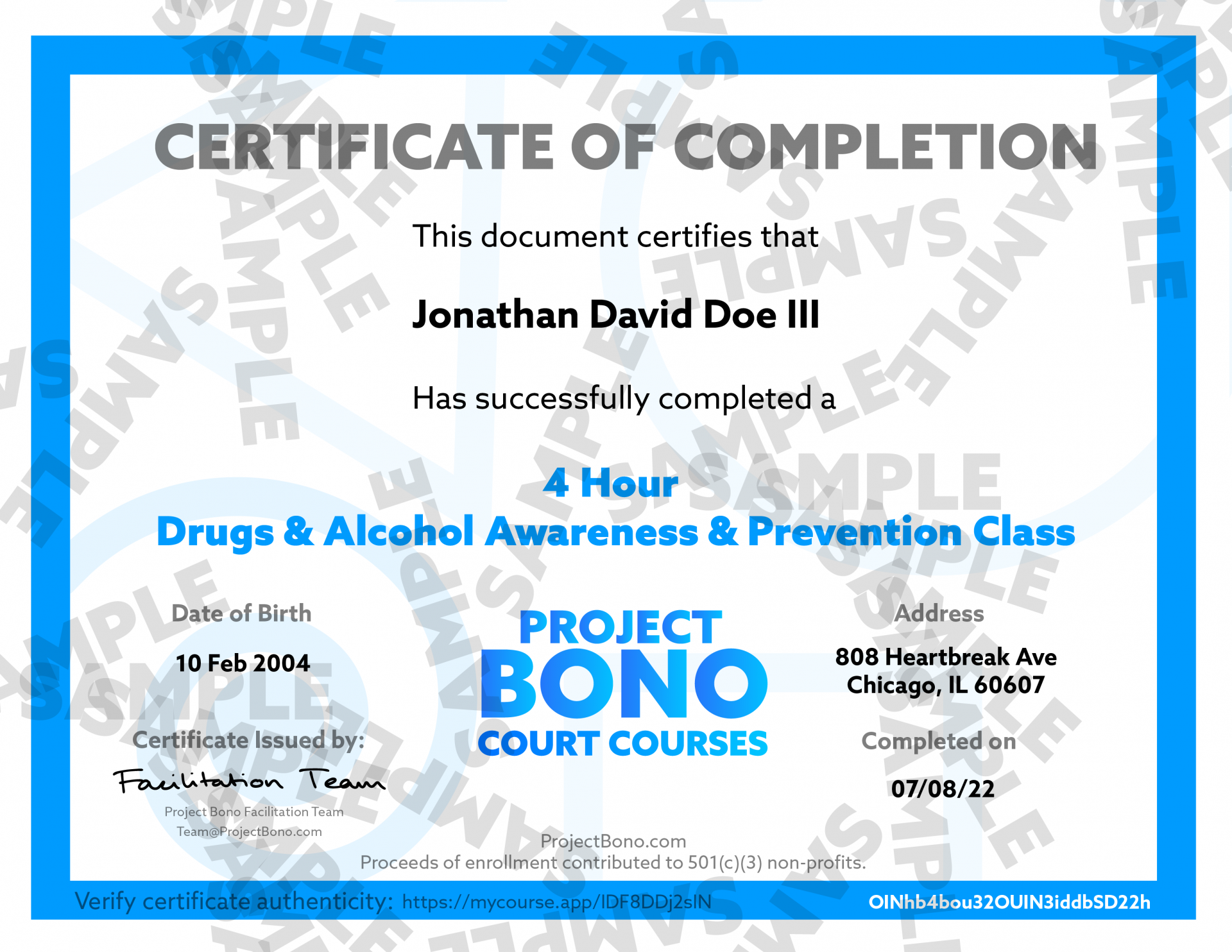
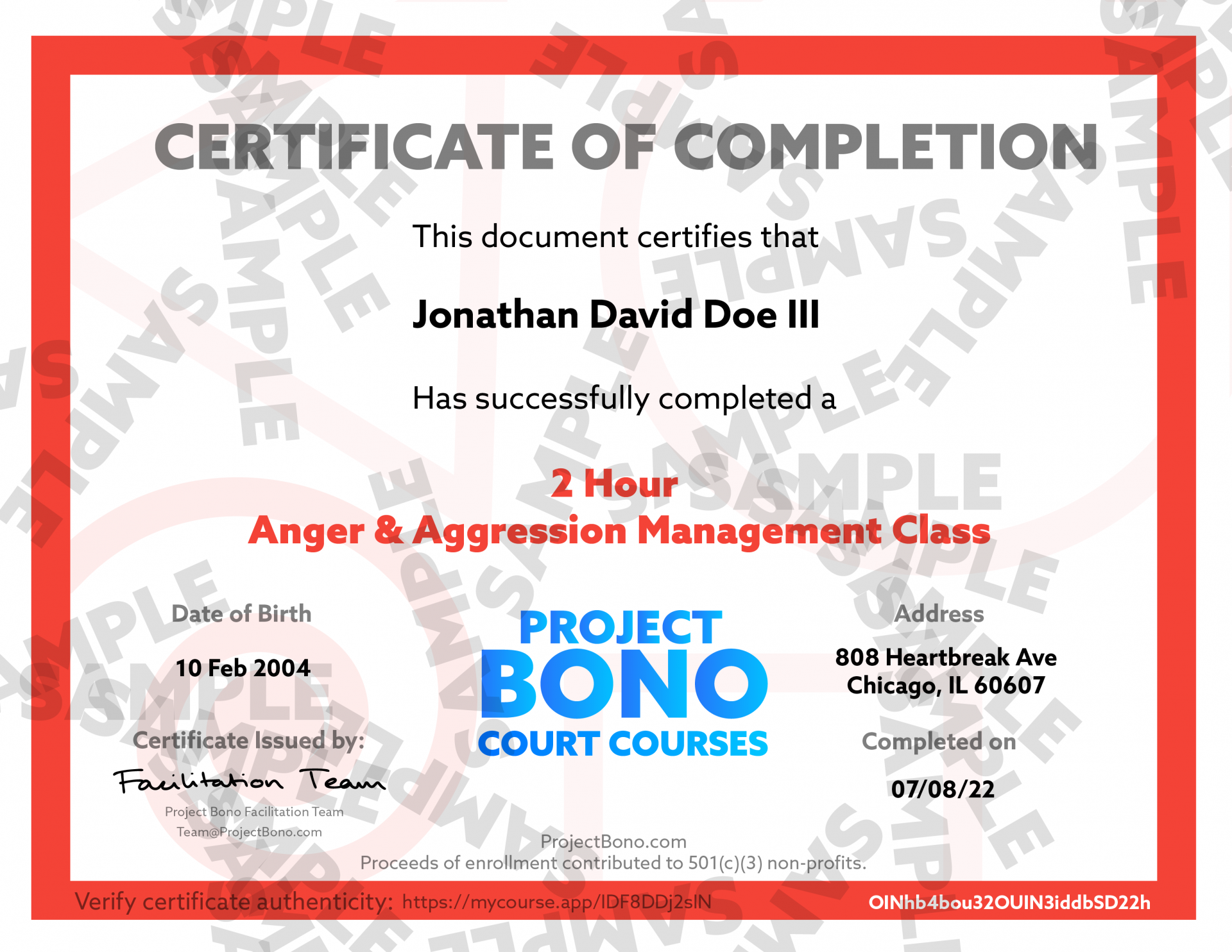
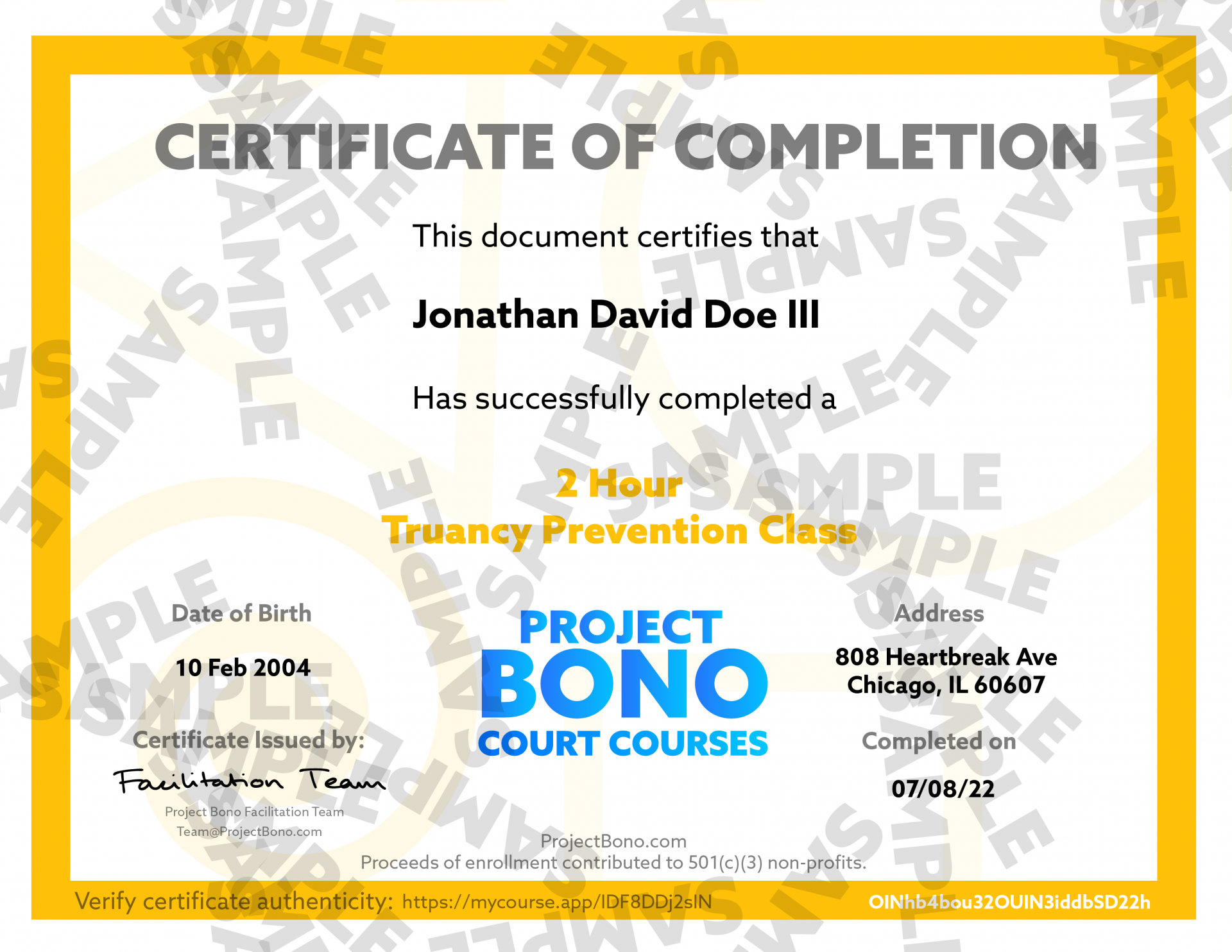
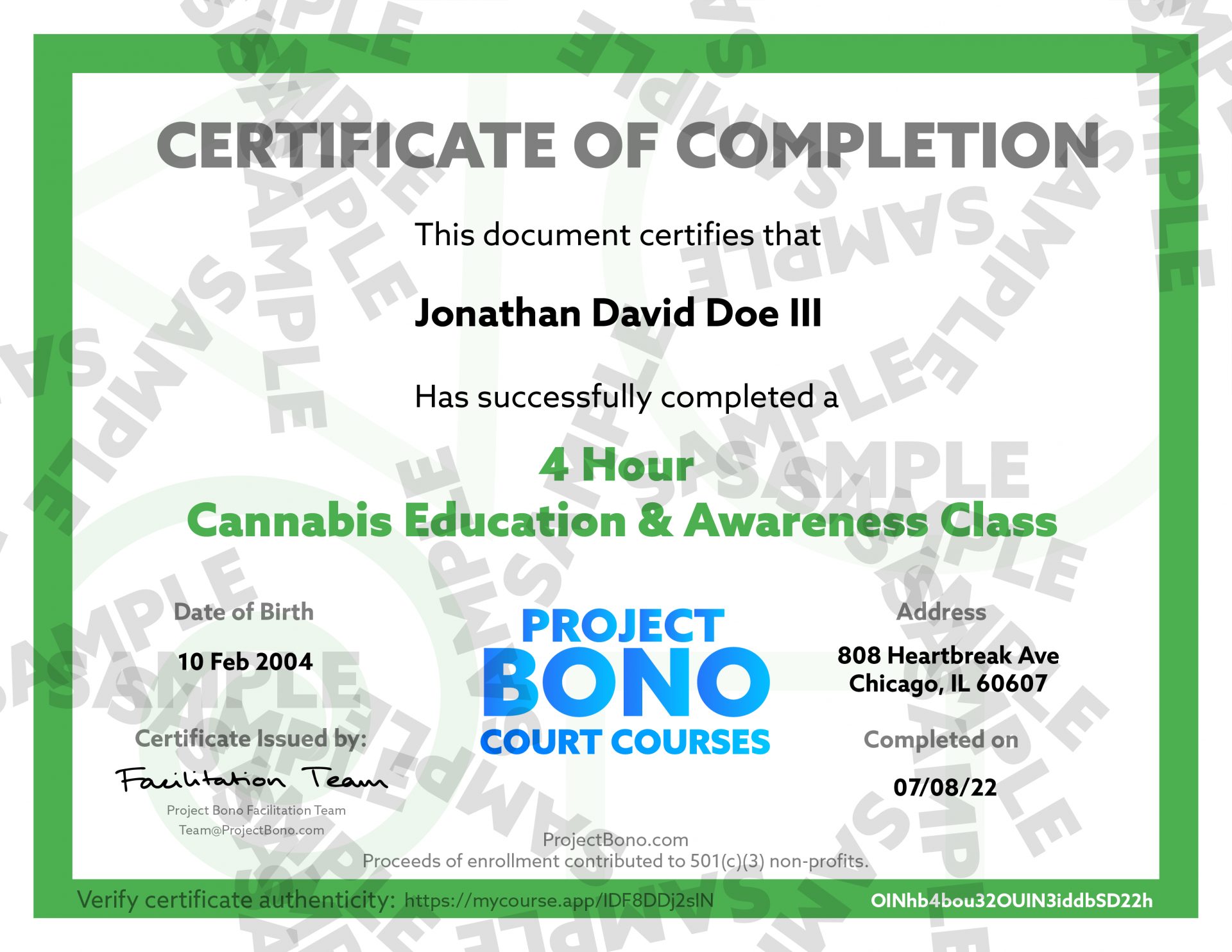
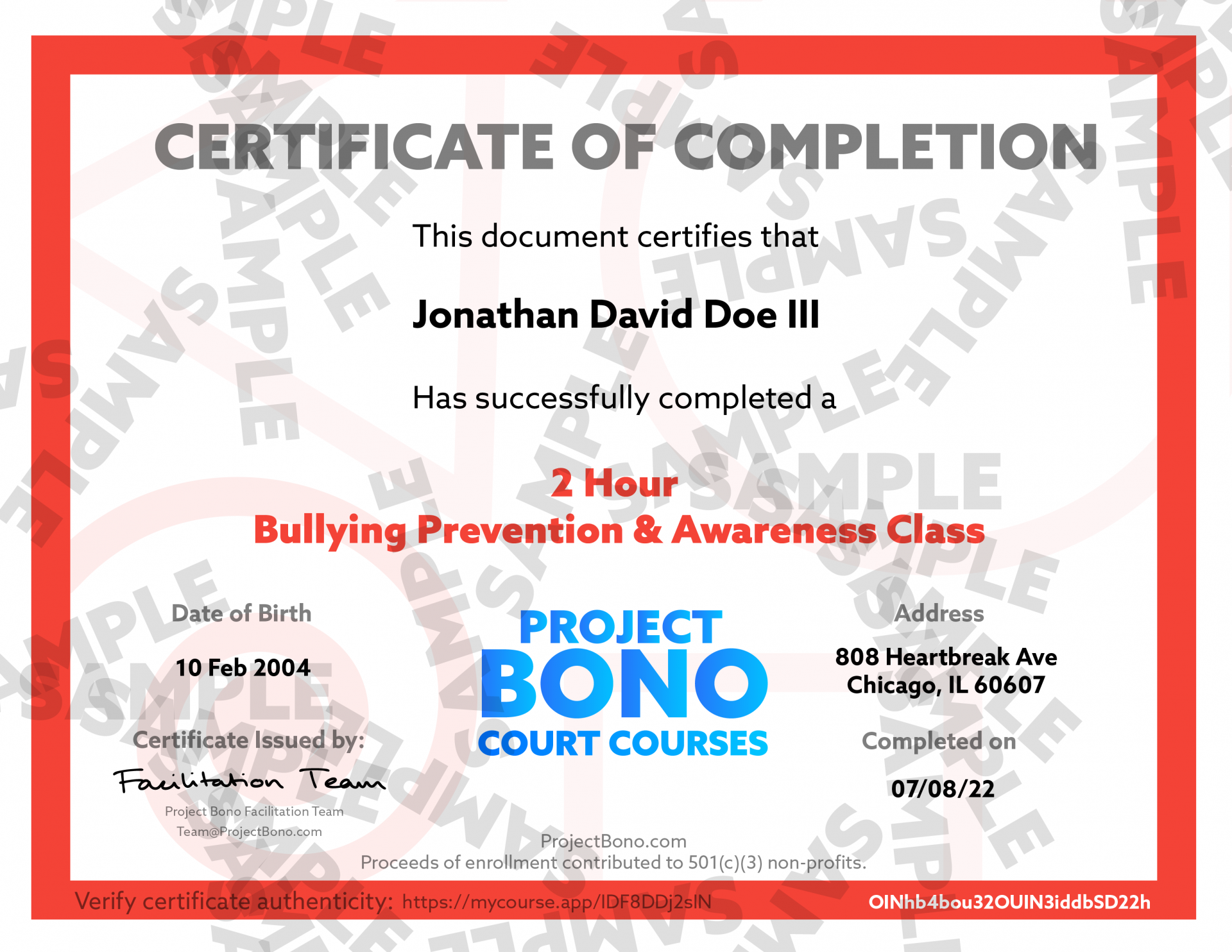
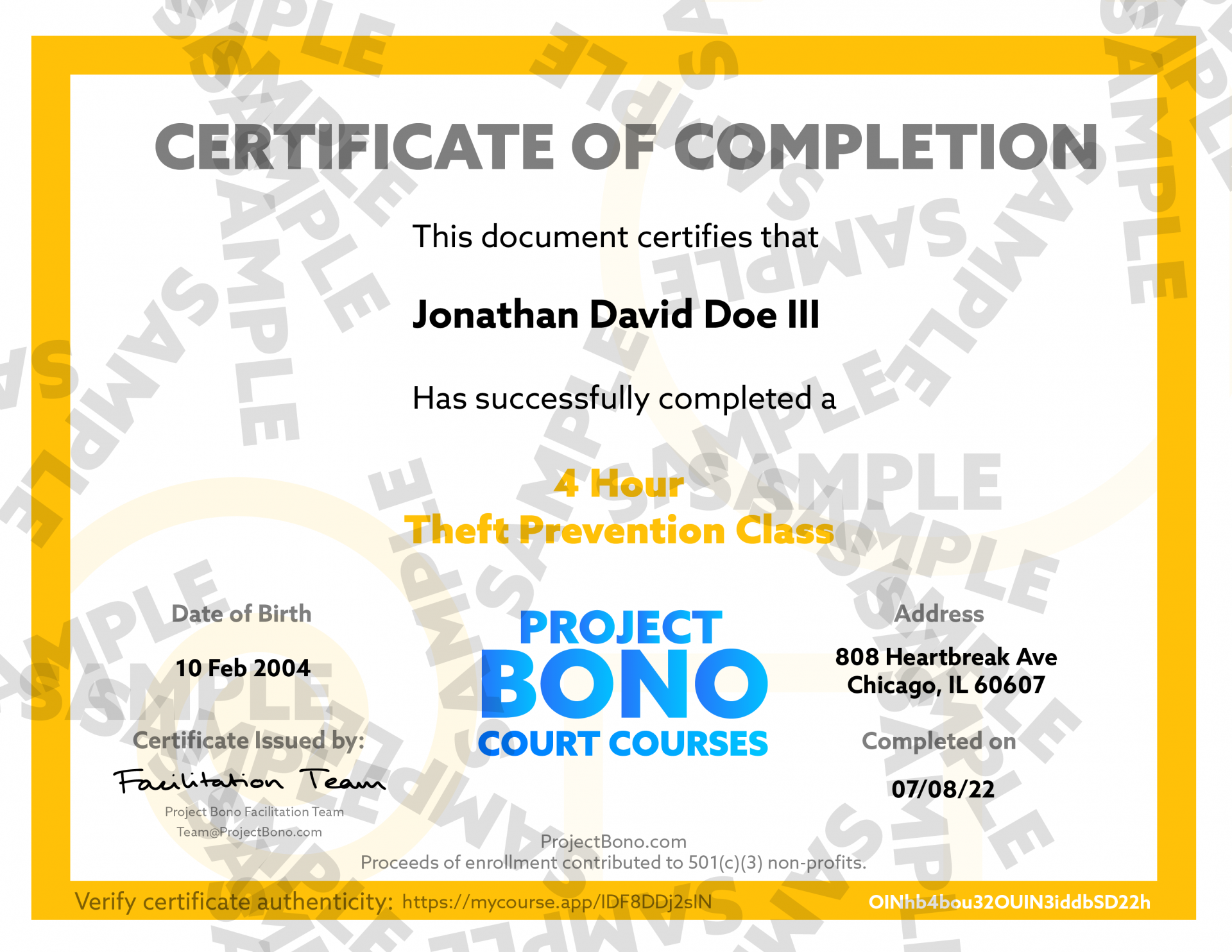
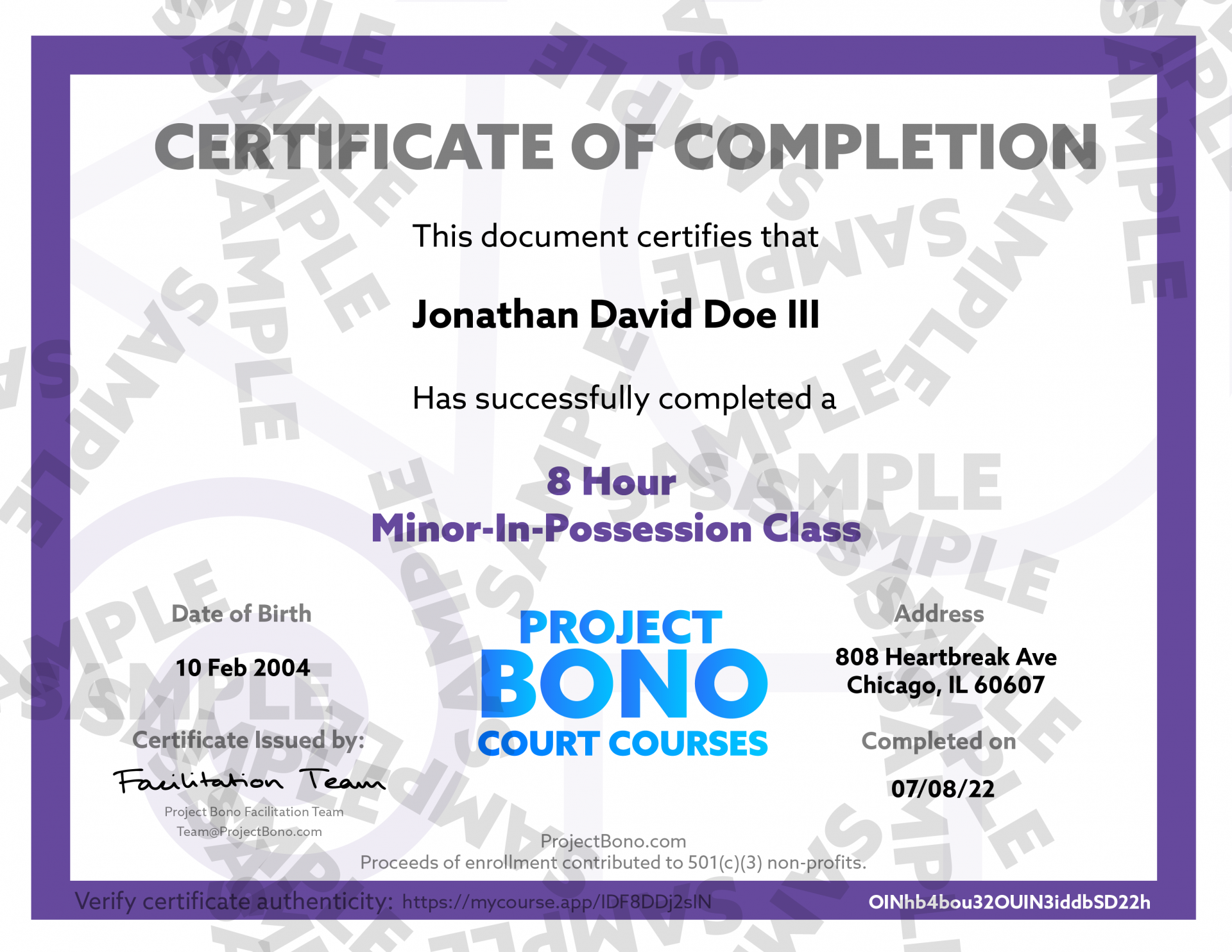
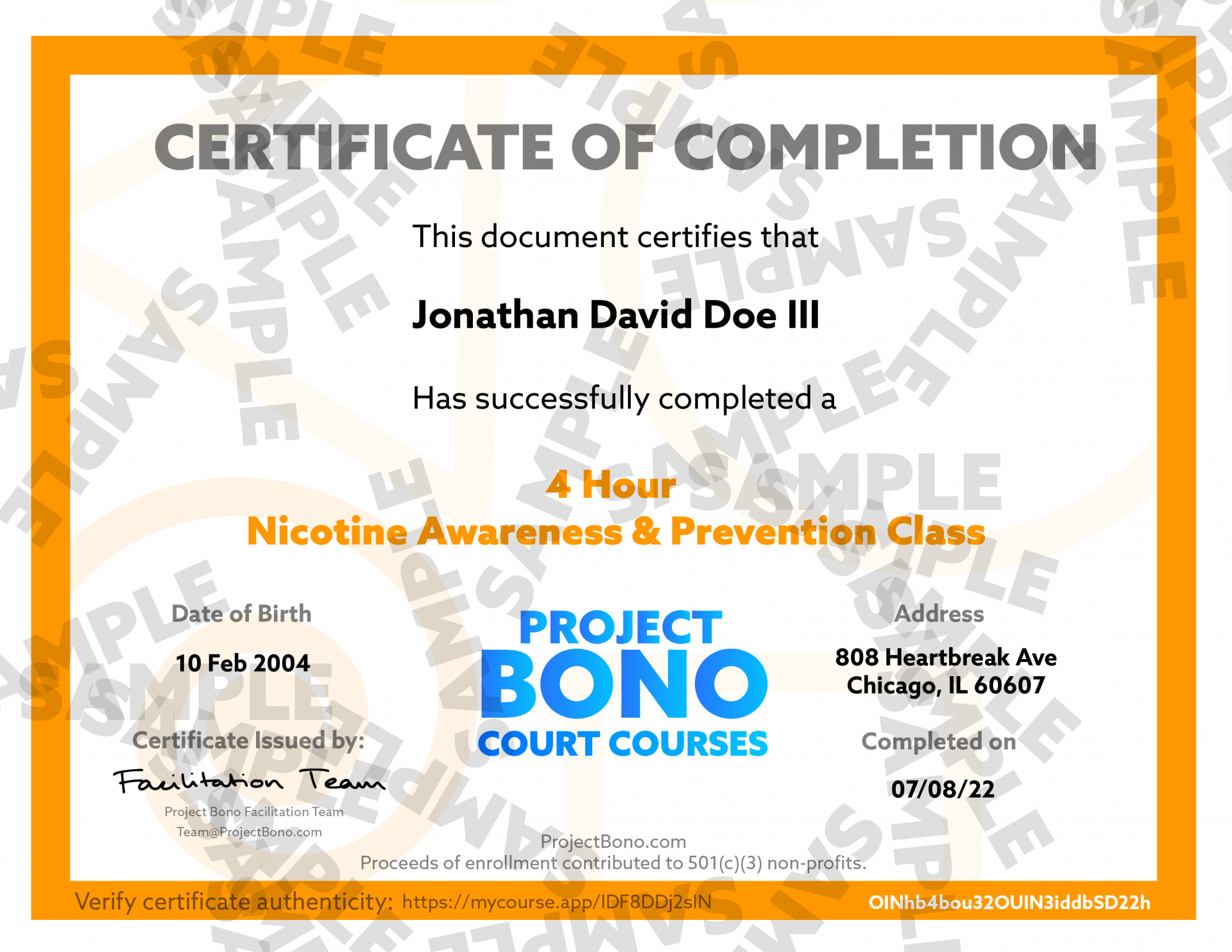
Course updates
Course contents and formatting are subject to improvements.
We are constantly monitoring current scientific and legislative data to provide you with the most accurate information within our courses. When you purchase any of our courses you are entitled to all future versions of the course.
We are constantly monitoring current scientific and legislative data to provide you with the most accurate information within our courses. When you purchase any of our courses you are entitled to all future versions of the course.
PrintableHandouts
Download and print PDF handouts to easily direct students to the correct course and start assigning!
How does Project Bono work?
Project Bono offers correctional education programs that aim to educate first-time and repeat offenders about the risks associated with substance abuse and harmful behaviors.
As you progress through our courses, you'll have access to various forms of media, including videos, to help you understand the material.
Once you've completed the course and met the time requirement, you'll receive a certificate of completion that you can share with your court, school, or employer.
As you progress through our courses, you'll have access to various forms of media, including videos, to help you understand the material.
Once you've completed the course and met the time requirement, you'll receive a certificate of completion that you can share with your court, school, or employer.
One thing that makes Project Bono stand out is that we donate 25% of enrollment proceeds back to the communities that assign our programs.
This means that by assigning our programs, not only are individuals learning valuable life skills and building awareness, but they are also enriching the communities that assign our programs.
This means that by assigning our programs, not only are individuals learning valuable life skills and building awareness, but they are also enriching the communities that assign our programs.
What Programs are offered?
We cover a wide range of topics including Drugs & Alcohol Awareness, Cannabis Education, Minor in Possession (MIP), Nicotine Prevention, Bullying Prevention, Anger Management, Theft Prevention, Truancy Prevention, and more.
We continuously update our programs to reflect current research and trends in substance abuse and other harmful behaviors.
Forgot your Password?
If you forgot your password, you can reset it by clicking on the "Forgot your password?" link on the login page.
If you signed up with an existing social account and the "Forgot your password?" solution doesn't work, you may need to change your password on the existing social account.
If you signed up with an existing social account and the "Forgot your password?" solution doesn't work, you may need to change your password on the existing social account.
Can I take a course on my phone?
Yes!
All of our courses are accessible across any device with a web browser.
All of our courses are accessible across any device with a web browser.
Can I take a course on my phone?
Project Bono is accessible to anyone with a web browser (such as Google Chrome, Safari, Microsoft Edge, etc.), and a stable internet connection. Whether you choose to participate from a desktop computer, laptop, tablet, or smartphone, you should be able to access our programs with ease.
Our website is designed to adjust to your device's screen size and resolution, making it easy to start a course on one device and pick up where you left off on another. If you have any questions about the technology required to participate in our programs, our support team is always here to help.
Our website is designed to adjust to your device's screen size and resolution, making it easy to start a course on one device and pick up where you left off on another. If you have any questions about the technology required to participate in our programs, our support team is always here to help.
What if my certificate is not accepted?
If your certificate of completion is not accepted by a member of the court, counselor, employer, administrator, or any other occupational, educational, or legal assigner, please contact us.
Our certificates come backed with a 30-day acceptance guarantee. If your certificate is not accepted for any reason, please provide us with documented proof of rejection, such as an email or written statement from the assigner.
We always recommend contacting your issuing party before purchasing any of our courses to confirm they will accept your certificate. Please note that refunds in these cases are only granted within the 30-day guarantee period.
How do I request a refund?
If you need to request a refund for any reason, including if your certificate of completion is not accepted by your assignor, you can do so by sending us an email at team@projectbono.com.
To enact our acceptance guarantee, please include in your email a written proof of decline from the assignor that includes a way of reaching them. If the request is within 30 days of your purchase and meets the criteria of our acceptance guarantee, we will process your refund promptly.
Please note that refunds that don't qualify for the acceptance guarantee, such as those requested outside of the 30-day window or for reasons other than non-acceptance by your assignor, are reviewed and issued on a case-by-case basis.
If you have any questions or concerns about requesting a refund, please don't hesitate to contact our customer support team at team@projectbono.com.
Am I able to pause the course?
Yes, participants are able to pause the course and continue at any time, on any device. Our platform is designed to save your progress consistently while you participate in the course, so you can pick up right where you left off. Whether you need to take a break for a few hours or a few days, you can rest assured that your progress will be saved.
We want you to get the most out of our courses and achieve your goals, and that means being able to learn at your own pace and on your own schedule. So go ahead and take a break if you need to - we'll be here when you're ready to continue.
How long does it take to complete a course?
The time it takes to complete a course varies depending on the time requirement you choose. When you enroll in a course, the time requirement will be clearly stated on the course page, along with an estimated completion time based on that requirement.
If you're unsure about which time requirement to choose or have any other questions about course completion time, you should reach out to your assigning party.
What does the certificate look like?
Every certificate generated by Project Bono includes the following information: course title and time requirement, student's name, birth date, address, date of completion, and certificate verification link. This information is unique to each certificate and cannot be duplicated or edited.
We offer certificates in PDF format because it's the most efficient way to send documents over email, while also reducing paper, ink, energy, transportation, and overall costs required to mail a physical copy.
Remember, it's important to submit your certificate of completion to your assignor as soon as possible to avoid any complications. If you have any questions or issues, please contact our support team for assistance.
Hollup.
Who are You?
Acceptance Guarantee
Enhance your assurance with our 30-Day Acceptance Guarantee.
Whenever you enroll in a Project Bono program, you have the peace of mind knowing that our certificate is backed by our Acceptance Guarantee. If your certificate isn't embraced by the assigning entity, we've got you covered.
Simply provide us with a proof of decline, and we'll handle the rest.
Simply provide us with a proof of decline, and we'll handle the rest.
◊ Acceptance Guarantee: Offer is only valid for 30 days from the date of certificate issuance and is available to participants within the U.S. The guarantee is subject to validation of the proof of non-acceptance provided by the enrollee. For detailed information regarding our policy, see support.projectbono.com/acceptance-guarantee.